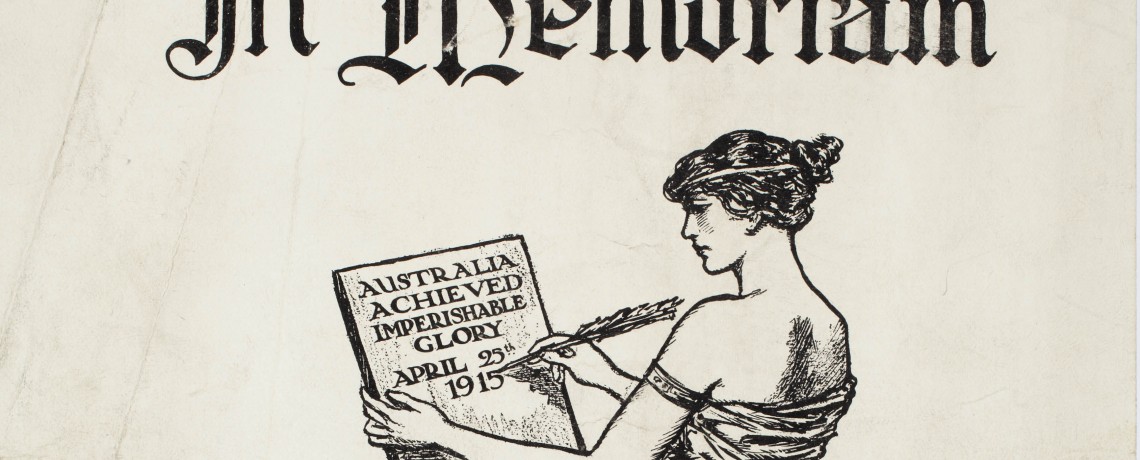Significant commemorative dates for NSW

NSW observes a number of commemorative dates marking the involvement of all who served Australia in conflicts and peacekeeping operations.
Anzac Day
25 April
The 25th of April was officially named Anzac Day in 1916 to mark the anniversary of the first major military action fought by Australian and New Zealand forces during the First World War. With the coming of the Second World War, Anzac Day also served to commemorate the lives of Australians who died in that war. The meaning of Anzac Day today includes the remembrance of all Australians killed in military operations.
RSL sub-Branches host commemorative services across the state to honour all who have served.
In Sydney:
- The Anzac Day Dawn Service takes place at the Cenotaph in Martin Place.
- The Anzac Day March for all returned service men and women and current members of the ADF takes place along Elizabeth Street.
- A lunchtime commemoration is held at the Anzac Memorial, Hyde Park Sydney, following the Anzac Day March.
- A sunset service takes place at the Cenotaph in Martin Place.
Indigenous Veterans Ceremony
May
As part of National Reconciliation Week, a ceremony is held in each capital city to commemorate the service and sacrifice of Indigenous veterans. Aboriginal and Torres Strait Islanders have fought for Australia in every major conflict since the Boer War.
Boer War Day
31 May
The Boer War Day commemorates the first war in which Australia fought as a nation. In 1899 NSW troops were the first to join in this war followed by all of the other colonies and after Federation in 1901 Australian units took part. The Boer War was also the first war in which Australians fought alongside New Zealanders.
31 May is the anniversary of the signing of the Treaty of Vereeniging that ended the South African War in 1902. Boer War Day itself is held on the Sunday before 31 May to enable working people to attend. Throughout NSW there are some 145 memorials that were erected during and soon after the Boer War. Boer War Day is marked where there are Boer War memorials or where there are groups of descendants and friends.
Battle of Fromelles
July
The Battle of Fromelles occurred in France on 19-20 July 1916 during the First World War. The action was intended as a diversion from the larger battle at the Somme and also at taking the Germans in a surprise attack. The diversion failed, some 5,500 Australians were killed and the Germans won a decisive victory. A commemorative service is held at the Anzac Memorial at Hyde Park each year on 19 July.
Korean War Day
July
A service of remembrance is held at the Korean War Memorial at Moore Park, Sydney, to mark the armistice signed on 27 July 1953 bringing hostilities to an end on the Korean Peninsula where Australians had served alongside the Republic of South Korea and twenty other nations.
A State Government reception is also held annually to honour all those men and women who served in Korea.
VP Day
15 August
VP Day (Victory in the Pacific) marks the end of hostilities in the Second World War with the surrender of Japan to the allied forces on 15 August 1945. Almost 40,000 Australian gave their lives during the war.
Vietnam Veterans Day
18 August
Ceremonies commemorating all Australian Vietnam Veterans are held on the anniversary of the Battle of Long Tan.
A State Government reception is also held annually to honour all those men and women who served in Vietnam.
Listen to a recording by Gareth McCray OAM about Australians who served in the Vietnam War:
VIET-VETS-AUGUST-18-DOCUMENTARY.mp3
Battle for Australia
September
The Battle For Australia is commemorated on the first Wednesday in September at the Cenotaph in Martin Place Sydney. This service commemorates all actions taken in the Pacific Region to defend Australia against the Japanese military force between 1942 and 1945.
War Widows Day
19 October
In 2022, the NSW Government designated 19 October as a special day for the State to officially recognise war widows and widowers of members of the Australian Defence Force for their contribution and personal sacrifice.
Kokoda Day
3 November
In 2022, the NSW Government designated 3 November as NSW Kokoda Day to officially acknowledge the Kokoda campaign of the Second World War.
Remembrance Day
11 November
Each year Remembrance Day is observed on 11 November and marks the end of the First World War after four years of conflict. Originally known as Armistice Day, Remembrance Day commemorates the signing of the peace agreement between Germany and the Allies that ended the war. A wreath laying ceremony is held at the Cenotaph Martin Place at 11 am on Remembrance Day. At 11 am on the day, a one minute silence is observed in memory of those who served.